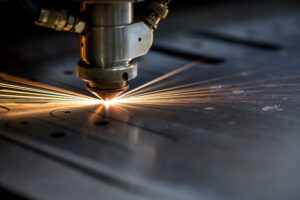
When it comes to creating new materials, one of the most popular is aluminum.
It’s quite easy to work with and you can create some pretty spectacular looking products made from it. However, before cutting into your material, you must determine how reactive the metal will be in different environments.
If you are working outside, there could be conditions such as water or other chemicals that might react with the surface of the aluminium. This would potentially damage the paint or gel layer that has been coated onto the aluminium!
This article will go over different methods for prepping the aluminum before lasing it. These include chemical treatments, abrasives, and buffing which all have varying effects depending on what kind of design you want to do hantencnc.com.
Different types of laser engraving
There are several different ways to do laser engraved aluminum products. Some of the most popular methods include pin-pointing, line drawing, dipping, and burnishing. All of these techniques can be done manually or with machines.
Pin-Pointed Alignment is one of the most common ways to create an engraved design on an item. A pin-tool is used to make small scratches in the shape of the wanted pattern. These tool tips are very fine and precise, so they must be cleaned and stored properly.
Burnishing is another way to add texture to an item. After applying heavy pressure onto the surface for a certain amount of time, the metal will begin to lose its original luster. This process is repeated until a desired look is achieved.
Dipping was also mentioned before. With this technique, a slightly thicker layer of material is scratched off, creating a lower depth area. Then, the thickness of the top coat is reduced in the same areas as the first dip.
Line drawing creates thinner lines than pin-point alignment or burnishing. It takes longer to complete the project due to the number of passes over the item, but it does not use as much energy as other methods. view more
Process of laser engraving
When you use lasers to create designs or get rid of surface materials, there are two main components of the process. A material to be etched, and a pulse-mode laser!
In most cases, the first component is done away with completely. You will always start by creating a layer of aluminum that does not melt when exposed to a laser beam. This layer of solid aluminum is called an etch mask. The second component is adding liquid to the area where you want your design to go.
This added fluid is called acid for reasons that become clear below. Once both parts of the process have been completed, then the laser can be turned up more than ever before!
The laser cuts into the metal via heat and chemical reactions. Both components must be present in the same place at the same time for this to occur.
Reasons to laser engrave
When it comes to choosing whether or not to add laser engraved jewelry, there are several reasons why this is the way to go. First, most companies that offer laser engraved pieces use quality materials such as aluminum or titanium for the plate. These metals can be polished and displayed just like other solid-metal items.
Second, many people find it elegant and distinctive. An easy way to see how popular this technique is is by looking at all of the laser engraved rings, bracelets, and pendants you have seen!
Third, most manufacturers will include some kind of identification number or detail within their piece. This could be your name, date, or even a house phone number! It depends on what product you are buying and what information you would like to know about it.
Fourth, the price is usually much less than having brooches, earrings, or necklaces made from metal that cannot be easily resold without being melted down. learn more
Sample projects of laser engraving
When talking about aluminum laser engraved jewelry, there are three main types of designs that can be done. There are small intricate patterns or text, large bold statements, and geometric shapes. All three styles can be made to look very elegant and beautiful.
In all cases, the surface area is important to consider when choosing where to place your design element. The larger the piece of metal, the more space there is for designing so that it does not get cut off or covered up.
Smaller pieces of metal do not require as much room to spread out, making them better suited for shorter texts or simple designs. They also are easier to handle due to lower temperatures.
Temperature plays an integral part in creating quality laser etched art. Higher temperature metals such as gold will cause the surface to oxidize, changing the color and effect.
What should I laser engrave?
When it comes to aluminum, your first choice will likely be creating an artistic design or adding some catchy text or messages. Or you can choose from one of many pre-made designs in your favorite genre such as say, motivational quotes or wedding proposals!
Aluminum is very malleable so there are unlimited ways to use it. You can create almost anything with it! The best way to know what kind of lasers to use on aluminum is by doing research and experimenting.
There are two main types of lasers that used for aluminum work: carbon dioxide (CO2) and yttrium aluminium garnet (YAG). Both require different settings and power levels to produce quality results depending on the look you want.
Carbon dioxide lasers are usually much more expensive than YAG lasers but they will give better quality engraved lines and shapes. This article will talk about how to use a CO2 laser to etch designs onto aluminum.
What effects does laser engraving have?
Most people are familiar with using lasers for cosmetic purposes, such as to remove hair or add rhinestones. However, there is an interesting way that they can be used for more important applications.
Lasers can be used to create very fine lines and patterns in metals. This technique is known as aluminum laser engraving and it’s becoming increasingly popular.
The effect that you can get from this type of laser work depends mostly upon what kind of metal your object is made out of and how thick the layer of protective oxide is on the surface.
If you look at the side profile view of most any car, you will see some small bumps along the sides. These are called rivets and they are there to help hold the two pieces of the vehicle together.
By removing the oxide layer with a strong laser beam, then putting something over the top of the metal to protect it from further oxidation, you can see where all the deep grooves in the shape of the part.
This effect is not easily seen unless you use a bright light to illuminate the area and check the thickness of the oxidized layer often to make sure it doesn’t grow back.
Are there health risks?
While laser engravers use very high levels of aluminum to create your jewelry, these levels are nowhere close to what is considered toxic. The average person has a threshold for how much aluminum they need to be exposed to before it becomes harmful.
Thresholds vary depending upon body size, activity level, diet, and genetics, but most experts agree that anyone over the age of 15 should not experience exposure to more than 5 mg per day – or about 1 teaspoon worth of powder.
That’s just one form of aluminum we know about! There are also ceramic additives in some lasers which can break down into aluminum as they work, so make sure you check this out too if you are particularly concerned about the effects of aluminum.
Remember, even though heavy metals such as lead, mercury, and iron are potentially dangerous when consumed in large amounts, they are never healthy! Avoiding exposure to them is the best way to stay safe.
Who should laser engrave?
When it comes to choosing whether or not to laseve, there are several things you need to consider. First, what will you use your item for? If you can’t think of anything, then don’t invest in laser etching!
Will this be an easy way to re-personalize the item? If so, great! But if you’re looking to make a statement with your gift, then investing may not be the best choice.
It is important to know how to use a laser properly. Make sure your settings are correct and that you do not overheat or burn yourself while using the device.
Also, remember that some materials cannot be etched by lasers. This includes some leathers and plastics.
Read more:
How To Aluminum Laser Engraving






